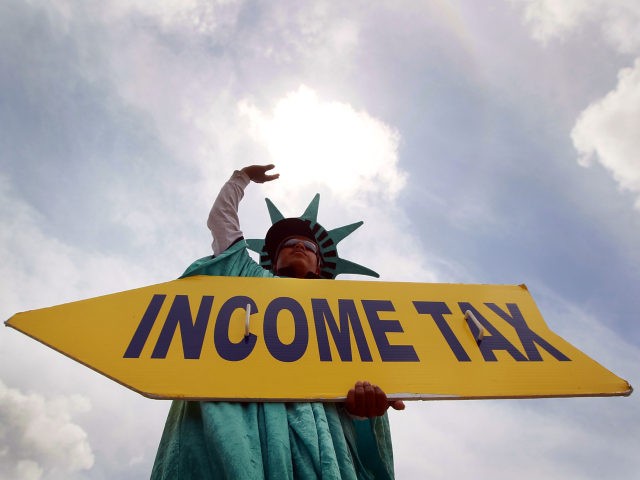CLAIM: White House climate adviser Gina McCarthy told CBS News Thursday individuals will not pay the proposed tax hikes because they will be levied on corporations.
VERDICT: Misleading. Harvard economist Gregory Mankiw argued in 2006 that the “corporation” does not pay the tax, but individuals affiliated with the business.
Steven Portnoy of CBS News asked McCarthy, a former EPA administrator, why taxpayers should pay for charging stations for electric vehicles and not Elon Musk, founder of Tesla.
Biden's jobs plan would pay for 500,000 electric vehicle charging stations.
Why shouldn't @elonmusk pay for that?
I asked WH climate advisor @ginamccarthy46. pic.twitter.com/17pZOdWi5l
— Steven Portnoy (@stevenportnoy) April 1, 2021
“We actually are going to be partnering with the private sector because the money we’re dedicating isn’t going to get us all the way there,” McCarthy said.
“This is really about making sure that the funding that goes to this package that we’re going to be expending when Congress moves this forward quickly, I hope, is recognizing that it’s not coming out of your pocket or mine,” she continued.
“It’s actually going to be funded through corporate tax opportunities, so we know the corporations are paying their fair share in this country.”
VERDICT: Misleading. Harvard economist Gregory Mankiw argued in 2006 that the “corporation” does not pay the tax, but individuals affiliated with the business:
When the government levies a tax on a corporation, the corporation is more like a tax collector than a taxpayer. The burden of the tax ultimately falls on people—the owners, customers, or workers of the corporation.
Many economists believe that workers and customers bear much of the burden of the corporate income tax. To see why, consider an example. Suppose that the U.S. government decides to raise the tax on the income earned by car companies. At first, this tax hurts the owners of the car companies, who receive less profit. But over time, these owners will respond to the tax. Because producing cars is less profitable, they invest less in building new car factories. Instead, they invest their wealth in other ways—for example, by buying larger houses or by building factories in other industries or other countries. With fewer car factories, the supply of cars declines, as does the demand for autoworkers. Thus, a tax on corporations making cars causes the price of cars to rise and the wages of autoworkers to fall.
“The corporate income tax is popular in part because it appears to be paid by rich corporations,” Mankiw wrote.
“Yet those who bear the ultimate burden of the tax—the customers and workers of corporations—are often not rich. If the true incidence of the corporate tax were more widely known, this tax might be less popular among voters.”
The left-leaning Tax Policy Center concurred:
Presidential candidates have a catchy slogan when they demand that “big multinational corporations pay their fair share”—whatever that might be. When voters hear that, they just need to remember that corporations themselves do not bear the burden of the corporate income tax. Shareholders bear most of that burden, and workers bear the rest at some point in the future.
President Joe Biden is proposing to increase the corporate tax rate from 21 percent to 28 percent, according to the Tax Foundation.
Kyle Olson is a reporter for Breitbart News. He is also host of “The Kyle Olson Show,” syndicated on Michigan radio stations on Saturdays–download full podcast episodes. Follow him on Parler.

COMMENTS
Please let us know if you're having issues with commenting.